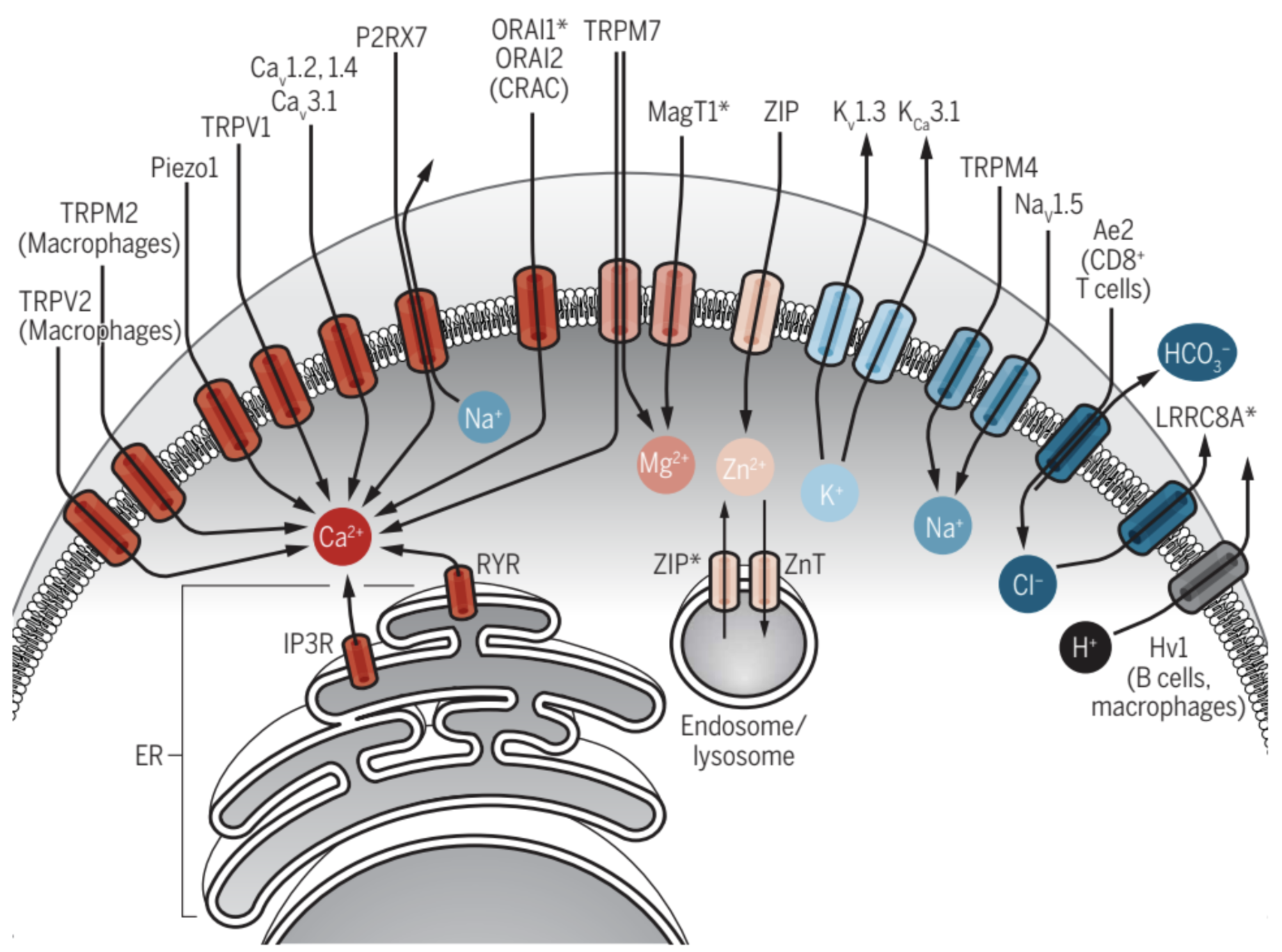Ion Channels and Transporters in Immunity

Welcome to the Concepcion Lab!
The Concepcion Lab combines cross-disciplinary approaches to investigate how ion channels regulate immune cell function. We strive to study the biophysical properties of ion channels at the molecular level, to understand how their regulation as well as their activity influence immune cell signaling, and to uncover how their function impact outcomes at the organism level in physiological and pathophysiological conditions. Our goal is to identify and characterize novel, specific, and functional ion channels in immune cells, allowing us to gain a understand how these proteins regulate the immune response and make both fundamental and translational advances in immunotherapy.

(Feske, Concepcion & Coetzee., Sci. Signal. 2019)
Sponsors








